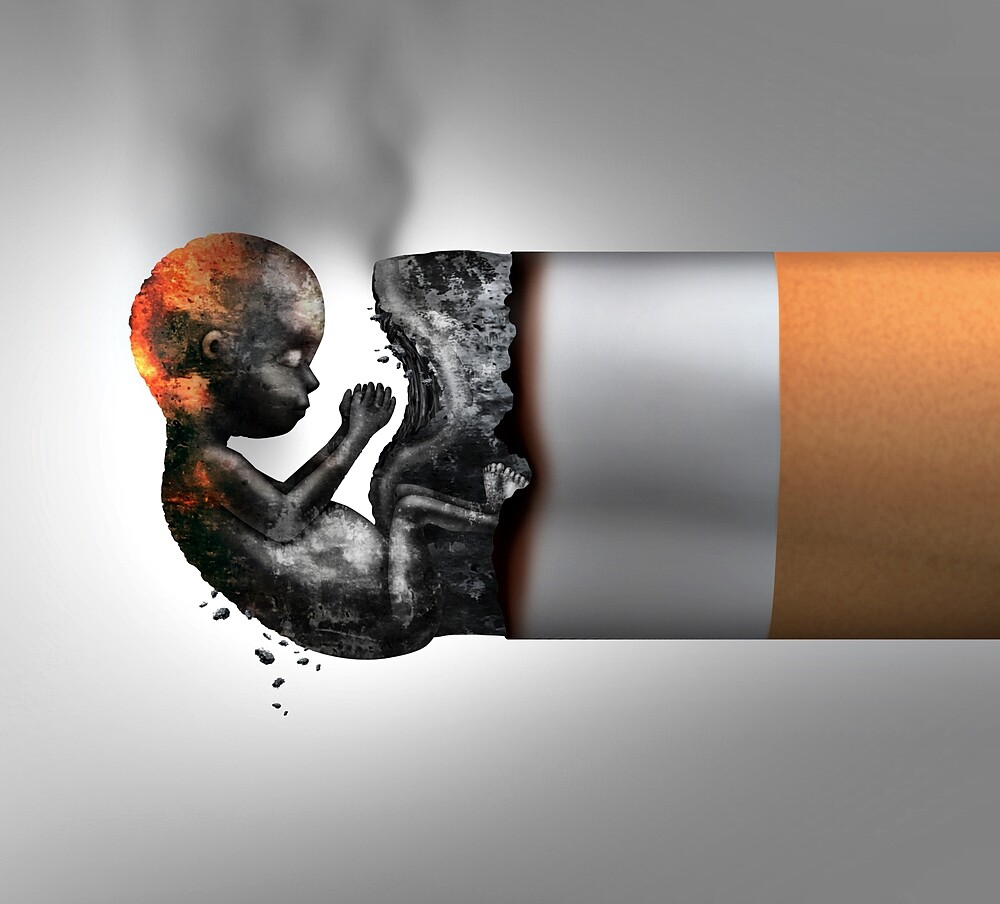How does smoking during pregnancy affect the unborn child? Is it enough to restrict cigarettes? We’ll tell you.
“Since I got pregnant, I only smoke five cigarettes a day.” Such sentences were still normal in our mothers’ generation – they were even proud of their own discipline. Fortunately, word has got around today that smoking during pregnancy is not only harmful to the mother herself, but also to the baby in her womb.
Nevertheless, the risks are still underestimated by many women. After all, smoking is also a strong addiction that is not so easy to overcome.
We answer the most important questions on the subject.
How does smoking affect pregnancy?
In fact, smoking has health effects on couples with a desire for children even before pregnancy. It worsens the quality of the sperm and can reduce a woman’s chances of becoming pregnant, as studies on artificial insemination have shown.
And tobacco smoke also has a negative effect on the unborn child. Nicotine constricts the smoker’s blood vessels, which means that the baby is less well supplied with oxygen and nutrients. And via the placenta, the toxic substances inhaled through tobacco smoke enter the child’s bloodstream directly. The damage that this can cause is also called fetal tobacco syndrome.
The influence of smoke is also visible: Some time ago, the 4-D ultrasound images from Durham University, which you can see in the video above, caused a sensation. Clearly visible: The fetus of a smoking woman, and below, the fetus of a non-smoking woman. While the lower child is sleeping peacefully, the upper one looks more restless, almost stressed.
What consequences does smoking have for the unborn child?
- Children of smoking women are often smaller and have a lower birth weight than children of non-smoking women.
- The risk of premature birth / stillbirth increases, as does the risk of Sudden Infant Death.
- The child has a higher risk of later developing allergies and asthma.
- The risk of malformations is increased. A comprehensive study by the University of London in 2011 has shown The risk of hand and foot malformations increases by 26 percent, that of clubfeet by 28 percent, and malformations of the skull are 33 percent more common. The risk of cleft lip, jaw or palate also increases by 28 percent. The risk of developing gastroschisis, a malformation of the abdominal wall with the prolapse of parts of the stomach or intestine, is even increased by 50 percent.
- According to recent studies, tobacco smoke can also lead to behavioural problems. Joachim Heinrich from the Institute of Epidemiology at Helmholtz Zentrum München says in a 2010 communication: “We were able to show that children who are exposed to tobacco smoke during pregnancy and the first years of life develop behavioral problems more frequently at school age. These include hyperactivity, attention deficits or disorders in relationships with peers.
How much can a pregnant woman smoke?
Unfortunately there are no tolerance limits here. Every cigarette smoked is one too many. But of course the risks increase the more cigarettes the mother smokes.
What helps me stop?
A statistic from 2005 showed that 13 percent of pregnant women in Germany still smoked at the beginning of their pregnancy. Only about a quarter of them manage to quit in the course of their pregnancy. It is worth it at any time!
If you find it very difficult, talk to your doctor about treatment options. Smoking cessation courses offered by many health insurance companies are also helpful. Ask your insurance company for offers in your area. Allen Carr’s book “Endlich Nichtraucher” (Finally Non-smokers) has also helped many smokers to free themselves from addiction.
It is also important that the environment follows suit. If the partner simply keeps on smoking, it makes it unnecessarily difficult for the pregnant woman to remain abstinent and keep smoking. In the best case he will stop smoking right away, or at least stop smoking in the presence of the expectant mother. After all, passive smoking also harms the unborn baby.
Can I start again after the birth?
Here, too, the following applies: For the sake of yourself and your children, refrain from cigarettes, even after birth – especially if you are breastfeeding! Because the poisonous substances of the smoke also get into the mother’s milk and are then absorbed by the infant during breastfeeding. Smoking also ensures that less milk is produced.
And even after breastfeeding, you should take advantage of the long break and simply stop smoking. So that the baby is not exposed to smoke later – and last but not least, of course, for your own health.

